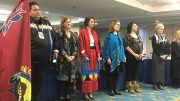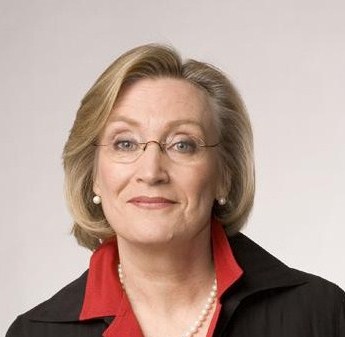by Jake Cardinal, Local Journalism Initiative Reporter
(ANNews) – On Dec 15, Prime Minister Justin Trudeau gave a speech to mark the fifth anniversary of the release of the Final Report of the Truth and Reconciliation Commission of Canada.
He also spoke about the implementation of Jordan’s Principle; the Government’s new policy and funding approach towards Indigenous education; and how they are working with First Nations to respond to the Final Report of the National Inquiry into Missing and Murdered Indigenous Women and Girls and the Calls for Justice, to develop a national action plan to end the systemic causes of violence against Indigenous women, girls, and LGBTQ and two-spirit people.
Despite the positive words spoken by the Prime Minister, the Canadian Government has been fighting its legal obligation towards First Nations peoples across Canada.
On Dec. 22, the government announced in a press release that Canada will expand eligibility under Jordan’s Principle to children who are recognized as members by their nation regardless of where they live in Canada on an ongoing basis.
At the same time, they filed for a judicial review regarding a November 2020 ruling regarding Jordan’s Principle eligibility.
In a twitter post, Cindy Blackstock, executive director of the First Nations Caring Society claimed the press release contained misleading statements and she called the move “beyond disappointing” news just before the holidays.
Last year, the Canadian Government lost its multi-year battle to overturn a Human Rights Tribunal decision requiring the government to provide compensation to Indigenous families and youth for harm caused by discrimination in Canada’s child welfare system.
However, instead of attempting to provide compensation for those who were harmed by the child welfare system, the Government spent billions of dollars on fighting the Tribunal ruling.
Then, a November 2020 decision further expanded criteria for compensation — under Jordan’s Principle — to include:
- Children registered or eligible to be registered under the Indian Act;
- Children with parents or guardians registered under the Indian Act;
- Children recognized by their community for the purposes of Jordan’s Principle;
- Children who ordinarily reside on reserve.
The Government’s issue with the new expanded criteria is that the “Tribunal’s decision was made without broad participation of First Nations communities and is a clear overreach of the Tribunal’s jurisdiction. The legal issues around the scope of the Tribunal’s authority to issue these decisions are important ones on which we seek further guidance from the Federal Court.”
“Deciding who belongs to a First Nation community is complex and Canada will work with First Nations in making those decisions and implementing the community acceptance aspect of this order,” said the Federal Government in the Dec. 22 press release.
Hadley Friedland, a University of Alberta assistant law professor told PressProgress that the government’s argument is a bit confusing.
“It is not clear to me, on its face, how the CHRT decision could potentially interfere with Indigenous communities’ decisions as to who qualifies as a First Nations child,” Friedland told PressProgress.
Cindy Blackstock called the government’s statement a “bogus excuse.”
“Days before Christmas, the federal government has decided to take First Nations children living off-reserve to court to overturn a legal order ensuring they can get the public services they need under Jordan’s Principle.”
According to the press release, “the expanded eligibility for Jordan’s Principle for children recognized by their nations will remain in effect regardless of the outcome of the judicial review.”
Jake Cardinal is a Local Journalism Initiative Reporter for Alberta Native News.







Be the first to comment on "Ottawa continues its legal fight over funding for Indigenous families and youth"